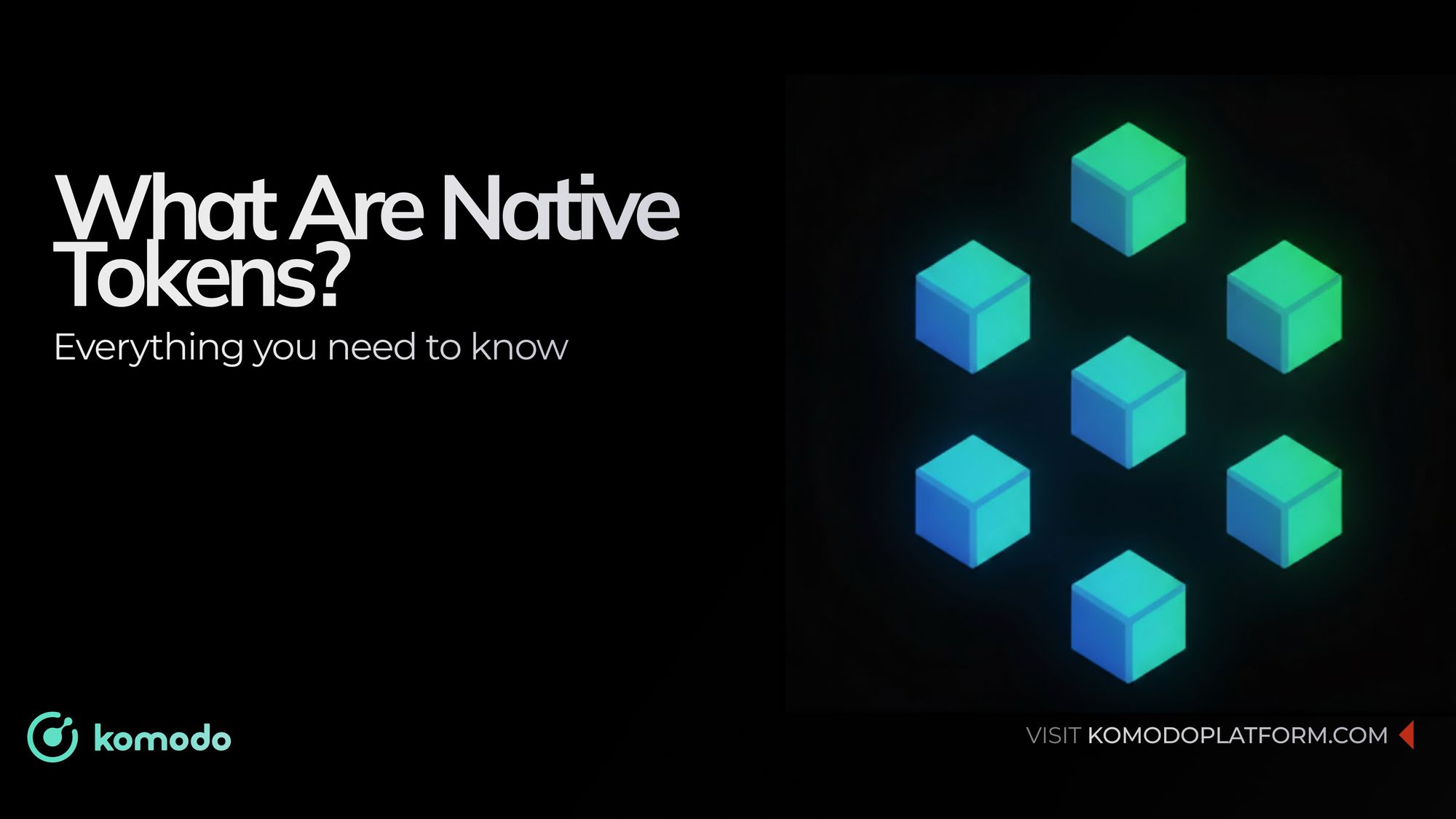Native tokens are the lifeblood of blockchain networks. They play a key role in powering the system, from processing transactions to supporting decentralized governance. Whether it's Bitcoin, Ethereum, or any other blockchain, each network has its own native token that keeps everything running smoothly.
In this article, we’ll break down what are native tokens and explain why they are vital for the health and growth of blockchain ecosystems.
The Role of Native Tokens in Blockchain Ecosystems
Native tokens serve many purposes within a blockchain. They are used to:
- On platforms like Ethereum, users need to pay a small fee (gas fee) to complete a transaction.
- In many blockchain networks, holders of native tokens can vote on proposals that affect the network.
- Some blockchains, like Ethereum 2.0, allow users to stake their native tokens to secure the network and earn rewards.
The native token's meaning expands beyond just payments - they are the backbone of decentralized systems, driving consensus, rewarding participants, and securing networks.
Why Are Native Tokens Important?
Native tokens are integral to the functioning of blockchain networks. They incentivize users to contribute to the network's security, growth, and maintenance. By offering rewards in the form of native tokens, blockchains can guarantee that participants remain engaged and motivated.
Additionally, native tokens help maintain the decentralized nature of blockchain technology. Unlike traditional systems, where central entities control transactions and assets, native tokens allow users to maintain full control over their funds without relying on intermediaries.
What Are the Benefits of Native Tokens?
Native tokens offer numerous advantages that are fundamental to the success and growth of blockchain networks. These tokens provide improved security, decentralization, and efficiency, which are key components for maintaining a robust and scalable ecosystem.
Security
Native tokens are secured by the consensus mechanism of their respective blockchain networks. For instance, Bitcoin uses Proof of Work (PoW), which guarantees that only valid transactions are recorded. This level of security prevents double-spending and fraud without the need for centralized oversight. By relying on the decentralized power of nodes and validators, native tokens are inherently more secure than tokens that depend on third parties or wrapped versions across chains. To learn more, see how to avoid pitfalls when trading native tokens across chains.
Decentralization
One of the key features of native tokens is their role in maintaining the decentralized nature of blockchain networks. These tokens are integral to the governance and operations of their networks, allowing users to make decisions through mechanisms like voting. Unlike traditional centralized systems, native tokens help remove the need for intermediaries, putting control directly in the hands of the network participants. This decentralization guarantees that no single entity has too much control, promoting a more transparent and fair system.
Efficiency
Native tokens allow for more efficient transactions within their blockchain networks. Because these tokens are native to their ecosystems, they don't require third-party validators or the wrapping process that can add complexity and fees. For example, transactions on the Bitcoin and Ethereum networks are settled directly through native tokens, enabling quicker and more cost-effective processing. This efficiency is vital for the scalability of blockchain technologies as they continue to grow and serve more users. To get the most out of native tokens, consider the top strategies for trading on exchanges.
Take Control of Your Native Token Trades with Komodo Wallet
Understanding what native tokens are is key to navigating the world of blockchain. By leveraging the power of native tokens, you can guarantee secure, decentralized, and efficient transactions across various networks. With Komodo Wallet, you can trade native tokens without the risks associated with wrapped tokens or third-party intermediaries. Komodo Wallet provides a trustless, self-custodial platform that supports seamless cross-chain trading, allowing you to take full control of your assets. Start trading native tokens today with Komodo Wallet and experience the benefits of secure, decentralized, and efficient blockchain transactions.
FAQs
Are native tokens the same as cryptocurrencies?
Yes, native tokens are a type of cryptocurrency. They are the primary currency used within their respective blockchain networks, such as Bitcoin for the Bitcoin blockchain or Ether for the Ethereum blockchain.
Can native tokens be used outside of their blockchain network?
Generally, native tokens are used within their own blockchain network. However, platforms like Komodo Wallet allow native token cross-chain trading, allowing users to exchange tokens between different blockchains without relying on third parties.
Can I earn native tokens without trading?
Yes, many blockchain networks allow you to earn native tokens by participating in staking, mining, or governance. Staking native tokens helps secure the network and, in return, participants earn rewards.
